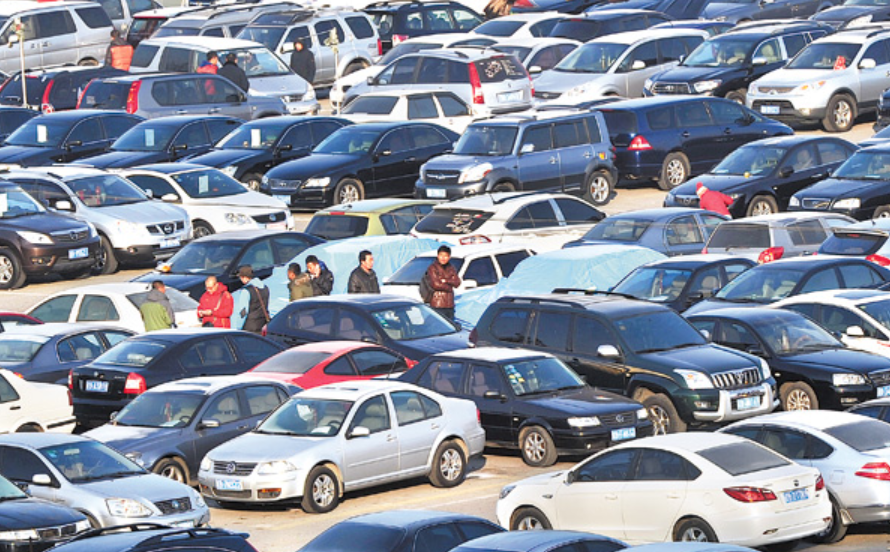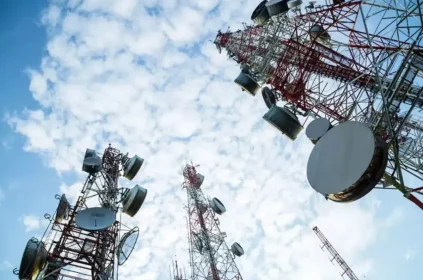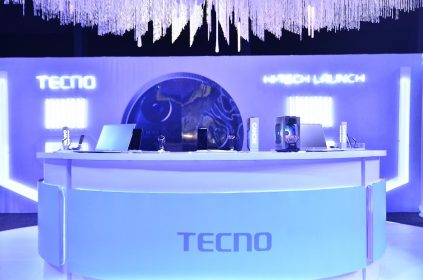‘Used Car Prices Soar In Nigeria, US As Americans Pay $5000 Repair Bill’
…High Demand for Used Cars By Americans Causes Price Spike In Nigeria
…As Rental Firms Dump, Sell Off Cars At Junkyards
…Nigerians now paying more to buy used cars than before
…Global Chip shortage takes the blame
…Pandemic Partakes in the blame
…As Manufacturers Shutdown Factories
…Prices For Available New Cars Soar
…But Local Manufacturing, Assemblage provide succor
Prices of used cars, also known as’ Belgium’ and ‘Tokumbo’ in Nigeria, have skyrocketed just as they have equally surged in the US.
Meanwhile, this dramatic sudden price climb is not only for used cars but also for new ones.
But, in what seems like a unanimous decision after, perhaps, calculating the comparative advantage and disadvantages, many Americans have now turned to willingly parting with above $5000 as Repair Bill for used cars instead of going for new ones.
Keep in mind, however, that before the pandemic, Americans would rather buy a new car than paying a few thousand dollars for the repair of an old one.
ALSO READ: Couple Weds As Avatars In The Metaverse: Bride’s Late Father Attends
This earlier trend had always joined other factors to further keep the prices of used cars very low, especially in countries like Nigeria that heavily imports cars.
But that old habit has now changed.
In fact, a recent poll by a research firm, Cox Automotive, showed that many U.S. consumers are now willingly shelling out $5,000 or more for used cars instead of buying new ones.
“More than 40% of car shoppers are willing to pay above manufacturer suggested retail price right now, and those willing to pay over MSRP are willing to accept a 12% premium,” Cox Automotive said.
Consequently, you might then want to ask like my friend, John asked me earlier:
Why then the sudden change? Why are more Americans going for used cars instead of buying new ones like they did before?
Could it be that they just discovered that what they have been tagging as broken vehicles are actually hot cakes in Nigeria?
ALSO READ: Chelsea To Experience Use Of ‘Robot Referees’ At Club World Cup
Or, have they noticed that Nigerian car importers are making fortunes from importing these used cars into Nigeria?
Note that Nigerians use ‘Belgium’ and ‘Tokumbo’ cars for longer years, even above 10 years after Americans dump them at junkyards.
But why do Nigerians even call used cars ‘Belgium,’ ‘Tokumbo’ and recently, ‘UK used?
Well, Nigerians also call other imported electronics appliances like TVs, Gas Cookers, fans, Air Conditioners, etc and many other items imported those names.
But why?
Various accounts abound as to the origin of those terms in Nigeria.
Some say that in the 70s and 80s, Nigeria imported goods first from Europe before looking to America and other countries. This was largely because most goods in Europe were allegedly manufactured in Belgium due to low cost of production. So, goods coming to Nigeria had “Made in Belgium” tags or inscriptions on them.
Another account says that in the 70s and 80s, Belgium was basically the assembly and transit point for second hand goods before onward shipment to Nigeria.
ALSO READ: Dangote Peugeot Automobile To Assemble Over 3000 Cars Monthly
Also, Nigerians call used cars ‘Tokumbo’ which translates from the Yoruba language and literally means ‘from overseas.’
So, Nigerians continued to describe imported clean second hand goods, especially cars, as ‘Belgium’ and sometimes calling those less clean, ‘Tokumbo.’
Nevertheless, for many Nigerians and others who may be wondering why prices of used cars have continued to surged in the country, well, just adjust your reading glasses and fasten your ‘reading’ belt for an interesting read.
So, keep reading and have an enjoyable experience.
The background:
Before the novel Corona Virus pandemic, Americans would go for new cars instead of paying repair bills for their old ones.
The idea of paying many bills for a used car is discouraging and old cars can be unpredictable.
Also, they would pay such bills as sales tax for buying a used car, though this also applies to new cars.
The tax goes to the state and its Department of Motor Vehicle.
This tax varies from state to state. While in some states, it is 3%, in others, it could be 5.75% or 8%.
Also, as an American, you would have to pay other bills as Title Transfer Fees, Registration Fees and Licensing Fees, among others.
Meanwhile, repairing a single problem in an older car doesn’t guarantee that another breakdown won’t happen.
But, if they could buy a new car, its warranty could cover them for at least three years.
So, Americans would opt for a new car than go for used ones.
Some also rented cars instead.
Car Rental as a norm:
Also, before the Covid-19 pandemic, many Americans would rent or hire cars for their transport needs.
This trend made such major car rental operators like Avis Budget Group, Hertz and Enterprise to thrive.
The rental companies had fleets running into hundreds of thousands of cars that Americans rented instead of buying new ones.
However, when Covid-19 struck and many Americans remained indoors, many rental companies dumped and started selling their cars at the junkyards as used ones.
Also, after failing to get bail-out funds from the US Government’s $2 trillion Coronavirus Aid and from Relief and Economic Security (Cares) Act, some rental companies closed shops and began selling their vehicles.
For instance, Hertz canceled $4 billion in orders for new cars but instead, dumped 198,000 cars into the used car market.
Similarly, Avis also cut its average fleet size to 440,000 and dumped some at the used markets too.
Then Covid-19 compounded the situation by forcing the world to adopt social distancing.
The Pandemic Disruption:
Meanwhile, the pandemic forced people out of the roads and this affected the transport sector.
It made many Americans wary of mass transits, prompting strong interest in car-buying.
While many people would no longer rent cars for fear of contracting the virus, others preferred to have private cars.
This meant that the people needed to buy their own cars.
As a result, demands for new cars rose.
This rise in demand soon led to the prices soaring.
Car prices soar as demands increase:
According to data from Kelley Blue Book which tracks market values for new and used vehicles, transaction price of the average new vehicle, a measure of how much people actually pay, remained over $40,000 in 2021.
It eventually reached $45,031 in September 2021.
Kelley Blue Book is a sub unit of Cox Automotive, a group of market-leading brands offering retail and wholesale solutions at every stage of the vehicle lifecycle.
The high demand in new cars was an increase of $4,872 or 12.1% in year 2020.
ALSO READ: If You’re Using Android Device, Delete This Bank Account Hacking App
Meanwhile, because prices for new cars rose high, most people turned to used ones for transportation.
Also, computer chip shortage, as well as inability for manufacturers to produce more new cars further heightened the situation.
Meanwhile, car manufacturers are still facing shortage of chip for producing new cars.
Global Computer chip shortage:
The ongoing global computer chip shortage that hit the world, especially manufacturing companies, led to many of them closing shops too.
Auto companies use chips to control electronics in modern cars and trucks.
So, because of the lack of chip, many manufacturers stopped producing cars.
This sent the prices of the available ones higher, causing a spike in the demand for used cars.
Prices of used cars continue to soar:
Also, as demands for used cars continued to rise, it equally pushed prices higher.
Meanwhile, there is a shortage of supply of used cars to meet the increasing demand.
In fact, prices for used cars averaged more than $25,000 retail since June, 2021.
This was $5,000 up more than a year ago, Cox Automotive states.
The situation is so bad that despite the $5000 Repair Bill on used cars as well as other bills, Americans still troop to have them.
This new trend has rather caused a resultant spike in the prices of used cars in Nigeria, a country that imports almost 90 per cent of the cars used in the country.
Nigeria and used cars:
Nigeria imports about 220 vehicles daily.
In fact, reports show that Nigeria and Ethiopia are the largest importers of used cars in Africa.
However, between the two countries, Nigeria tops.
Nigeria’s Vice President, Prof. Yemi Osinbajo, said in 2020 that demand for vehicles in Nigeria stood at about 720,000.
He had said that the figure was against actual local production by the available assembly plants which was at about 14,000 capacity.
The vice president said that although available assembly plants in the country had about 14,000, the country, however, imports approximately 220 vehicles daily.
That brings the number to about 6, 820 vehicles monthly.
Also, it means that at least, about 80,300 vehicles come to Nigeria annually compared to the 14,000 that are [manufactured] or assembled locally.
Likewise, in a previous report by Techuncode, it said that a five-year import analysis shows that Nigeria imported about 400, 000 vehicles between 2015 and 2020.
Meanwhile, demands for used cars in Nigeria have continued to increase even as the prices soar higher.
But various factors, aside the high demand by Americans, equally contribute to the skyrocketing prices in Nigeria.
For instance, investigation done by Techuncode found that prices of imported cars in Nigeria have increased lately.
A 2004 model of Toyota Camery that sold for at most N1,800,000 in late 2019 now sells for at least N2, 500, 000.
Furthermore, a car dealer at Ladipo Auto Market in Lagos, who only gave his name as Celestine, told Techuncode that a Toyota Camery called “Big Daddy” which sold for between N1,500, 000 and N1, 800, 000 mid 2021 now sells for N2, 700, 000.
Also, a further check on Nigerian-based e-commerce platform, Jiji proved the dealer right.
While a 2009 Toyota Corolla now sells for about N3, 300, 000, you could buy it for at least 15% lesser that amount in 2020 and 2021.
Also, a 2009 Honda Civic that now sells for between N2, 800,000 and N3, 100, 000 sold for at most, N2, 200, 000 or a couple hundred thousand more.
A further investigation into other car makes gave similar findings.
Meanwhile, Mr Celestine blamed the price change on the high rate at which the Nigerian Naira exchanges for the US Dollar.
ALSO READ: FG Gives Reasons For Fuel Scarcity As Queues Resurface
He said “during former president Goodluck Jonathan, exchange rate was average of N198 naira to a dollar. But now, the naira exchanges at average of N415 to a dollar.”
The dealer said the high exchange rate resulted in car importers having to exchange more Naira to import used cars than they did in 2015.
Consequently, the importers would have to sell the cars to Nigerians at higher prices to make profit.
He supported his claims by saying “the prices will continue to go higher. It has always been like this. Any time the price of something goes up in Nigeria, it never drops again.”
Meanwhile, it is evident that the automobile sector contributes to Nigeria’s Gross Domestic Product (GDP).
The Minister of Finance, Budget and National Planning, Zainab Ahmed, had said the automobile industry contributed about 9.20 per cent to the country’s GDP.
However, Regardless of the contribution, the over-reliance on importation stifles local production and growth.
Consequently, a Businessday report states that the heavy reliance on importation of vehicles had sadly cost Nigeria N1.8 trillion.
Now that Nigerian importers might have to pay more to import used cars, as well as Nigerian consumers paying higher to buy cars, having many local manufacturers and assembly plants can help the situation.
Local Manufacturers to the rescue:
Meanwhile, few days ago, Africa’s richest man, Aliko Dangote’s Peugeot Assembly plant in Kaduna began operation to further support Nigeria’s indigenous vehicle manufacturing company, Innoson Vehicle Manufacturing Company, to make cars available to Nigerians.
While Innoson’s manufacturing plants produce at least 32,000 vehicles annually, Dangote’s plants will assemble more than 3000 cars monthly.
Therefore, with the Dangote assembly plant joining Innoson, hopefully, heavy reliance on importation would reduce.
Implications:
One thing is salient: Prices of used cars will keep increasing in Nigeria if Americans continue to embrace used cars despite paying $5000 Repair Bills.
So, to have a car, a Nigerian will pay higher.
Also, Nigeria will keep losing more money by over-relying on importation.
Similarly, America will equally lose foreign income if more Americans keep recycling used cars in the U.S instead of the country generating more revenue from foreign buyers.
Nevertheless, the electric vehicles are gaining wider usage recently.
Also, there are hopes the chip shortage crisis will end.
These developments, hopefully, will help drive down the prices of used cars in due time.
Well, let us pull over right here and hope you enjoyed the read.
Remember to share this report and type your comment below.



















 and then
and then